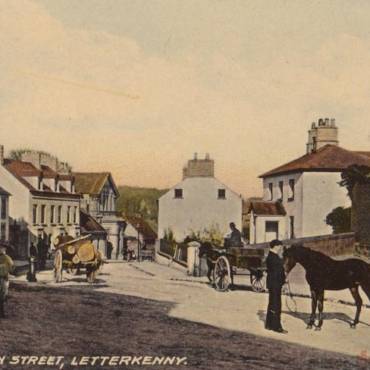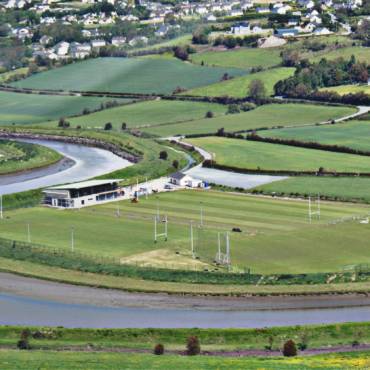Connections with 1916 (2): The McGinley Brothers
There is sometimes a misconception that there were THREE Donegal men in the GPO. However, this is not the case. The only recognised Donegal man in the GPO was Joseph Sweeney from Burtonport (who attended St. Eunan’s College briefly in Letterkenny prior to St. Enda’s) – as was mentioned in a previous post. The two others that are often misconstrued to be from Donegal, Conor and Eunan McGinley, were actually from Dublin. Their father, Cú Uladh, was from Donegal, but these two men were not.
Peadar Toner Mac Fhionnlaoich (Cú Uladh) was a prominent writer in the Gaelic Revival and was brother of Pat McGinley (the father of Dr J.P. McGinley, surgeon in Letterkenny). He was born in Altinierin in Glenswilly in 1857. He became an Inspector of Taxes and had been assigned to London, Leeds, Halifax, Wales, Portarlington, Letterkenny, Belfast, Lisburn and Dublin.
In 1895 he married Elizabeth Woods and they had twelve children. Conor McGinley was born on 26 June 1897 in Belfast, the eldest of ten sons. Upon moving to Dublin, they lived at 108 Lower Drumcondra Road. Conor and his younger brother Eunan both subsequently attended Padraig Pearse’s St Enda’s School in Rathfarnham. In 1916, Conor was 19 and was attending UCD studying architecture but still living at St. Enda’s. On Good Friday, he was hand picked by Pearse to deliver messages by bicycle throughout the city to the leaders of the coming rebellion. Following the Rising itself, he was held in Dartmoor and Lewes prisons before being released in April 1917. He later became Dublin’s City Architect.
His younger brother Eunan McGinley was only 16 when the Rising occurred. Following his arrest he was held in Stafford prison before being released in July 1916.
The two McGinley brothers both played prominent roles in the Easter Rising, being stationed in the GPO. They were both born in Belfast and raised in Dublin so cannot be considered to be from Donegal however. Their father, Cú Uladh did hail from neighbouring Glenswilly though, so their connection to the county and this area, although slight, is still valid.



